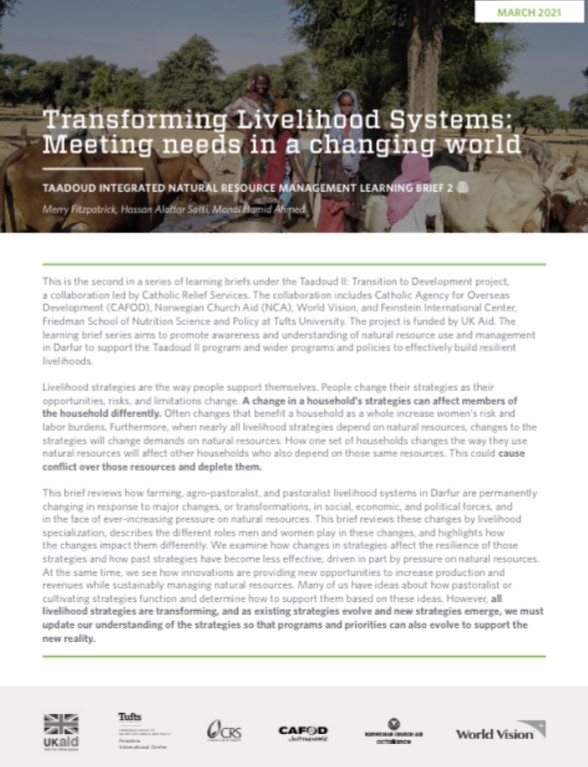Livelihood strategies are the way people support themselves. People change their strategies as their opportunities, risks, and limitations change. In Darfur, Sudan, the past two decades have seen social, economic, and political changes on an unprecedented scale, significantly impacting livelihoods.
This brief reviews how farming, agro-pastoralist, and pastoralist livelihood systems in Darfur are permanently changing in response to these major changes and in the face of ever-increasing pressure on natural resources. We examine these changes by livelihood specialization, describe the different roles men and women play in these changes, and highlight how the changes impact them differently. We also examine how changes in strategies affect the resilience of those strategies and how past strategies have become less effective, driven in part by pressure on natural resources. At the same time, we show how innovations are providing new opportunities to increase production and revenues while sustainably managing natural resources.
As all livelihood strategies are transforming, existing strategies are evolving, and new strategies are emerging, this brief aims to help actors working in Darfur to update their understanding of the strategies so that programs and priorities evolve to support the new reality.
This is the second in a series of four learning briefs under the Taadoud II: Transition to Development project. The learning brief series aims to promote awareness and understanding of natural resource use and management in Darfur to support the Taadoud II program and wider programs and policies to effectively build resilient livelihoods.







